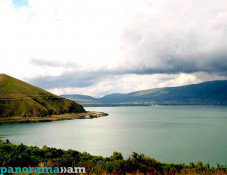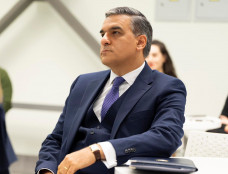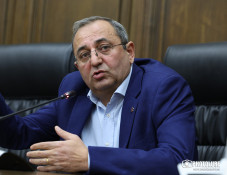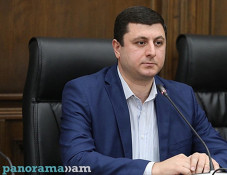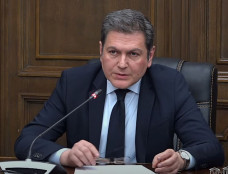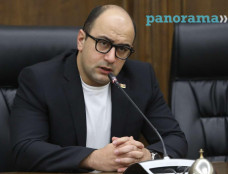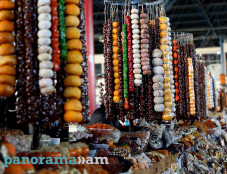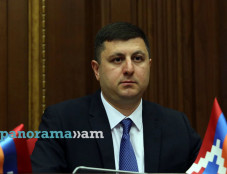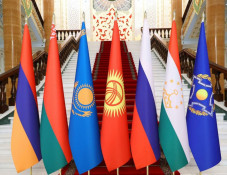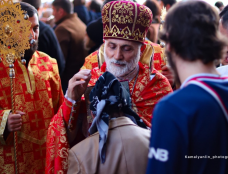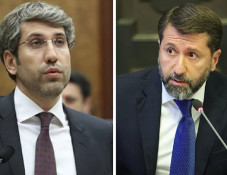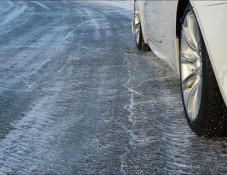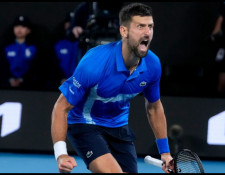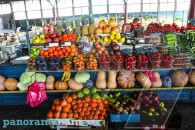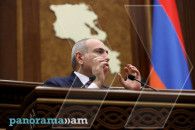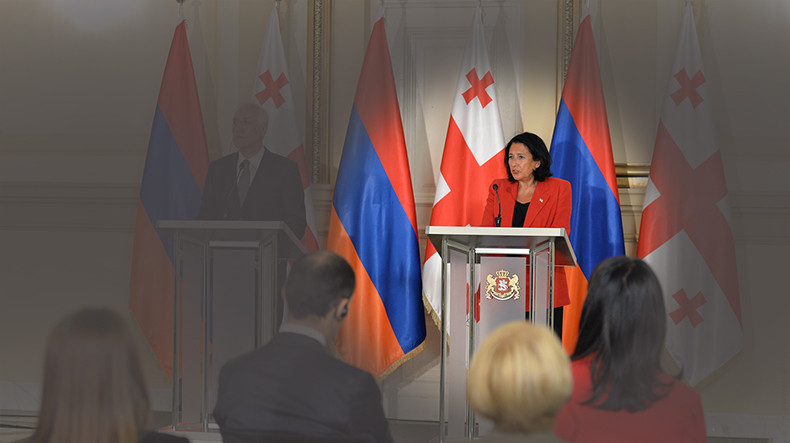
Response from Javakhk to Georgian president's statements
Armenia’s President Vahagn Khachaturyan paid an official visit to Georgia in late May. At a private meeting with Georgian President Salome Zourabichvili, issues concerning Armenian-Georgian relations and the prospects for their development were discussed. Zourabichvili highlighted that the visit took place on the 30th anniversary of establishment of diplomatic relations between Armenia. Also, she made statements regarding Georgia’s Armenian community.
Panorama.am has reached out to Eduard Ayvazyan, Director of the Samtskhe-Javakhk (Javakheti) Media and Analysis Center, for comments on the Georgian leader’s statements.
Panorama.am: At a meeting with Vahagn Khachaturyan, Georgian President Salome Zourabichvili said that "all conditions have been created in Georgia to preserve the national identity, language and culture of Armenians living there. Georgian Armenians can actively participate in the public life of the country. Efforts in this regard continue unabated. Peaceful coexistence of ethnic Armenians and Azerbaijanis in Georgia indicates the tolerant environment created in the country and is a good example for the Caucasus region.”
Is the situation as the president of Georgia has presented it? What problems pending settlement for years have you identified? Are any steps being taken to solve them?
Eduard Ayvazyan: In fact, the problem of preservation of the Armenian language has always been. Years ago, before Zourabichvili took office as president, the number of Armenian language classes in Armenian schools decreased from five to three. True, school principals can add an extra class, but not everyone does it.
Armenian language teachers need refresher courses, which should be organized jointly by the Armenian and Georgian authorities. In general, there are no serious obstacles to teaching Armenian, but there is no encouragement either. Young people have no desire to become teachers of the Armenian language and literature, thus their number is falling. The Armenian authorities should work hard to tackle the issue.
As for textbooks, the problem has not yet been completely solved. There is a shortage of textbooks, which also affects the teaching of the Armenian language. In addition, there is an issue of raising the qualification of teachers. Teachers are required to pass an exam and get the status of a senior teacher so that their salaries are increased. Armenia should help Armenian language teachers to pass these exams for raising their qualification and, as far as I know, it's all under consideration. To the best of my knowledge, Shirak Torosyan, who represents Javakhk in the Armenian parliament, is dealing with these issues and results are already visible.
As far as the involvement of Armenians in the internal life of Georgia is concerned, the Georgian authorities need to work on it. I believe there is a very serious problem here: Armenians are not integrated into Georgian society, they are not involved in the processes taking place in the country. It’s for the state to deal with the issue, but whether they want it or not is another question.
The claims about peaceful coexistence of Armenians and Azerbaijanis in Georgia is also only partially true. Before the 44-day war [in Artsakh in 2020], when tensions escalated in Tavush Province in summer, the Azeris held a rally and then a group of them attacked an Armenian. After the 44-day war, Armenian drivers passing through the Azeri-populated areas were stoned. Finally, last year in Adjara, chanting slogans like "Karabakh is ours or yours", Azerbaijanis attacked with knives the schoolchildren from Akhalkalaki, who were on an excursion in Adjara. You know, Georgia’s Ministry of Internal Affairs did not properly respond to these incidents, while our requests were almost always left unanswered.
We know that an arrest has been made, but no one knows anything about the punishment, which suggests that such incidents may reoccur because they will not be afraid of law enforcement.
However, in general, Armenians and Azerbaijanis live peacefully in Georgia, but I reiterate that such incidents must be punished so that the others are not tempted.
Panorama.am: Is there a problem of Turkification of the Samtskhe-Javakheti region? If yes, what is being done to solve or alleviate the issue?
Eduard Ayvazyan: The threat of Turkification exists not only in Samtskhe-Javakheti, but also in the entire region. Look at the number of Azeris and Turks in our region. Armenia and Georgia have become small islands in the Turkic world, and we should all draw conclusions from it. It seems that very good relations are now being formed between Armenia and Georgia, which inspires fresh hope that the countries, being aware of the common challenges, will solve these problems together.
Interview by Tatev Manukyan
Newsfeed
Videos





